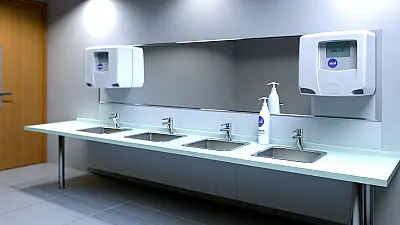LOS ANGELES, CA - Windsor Care Center of Cheviot Hills failed to create essential care plans for a resident with serious sleep apnea requiring breathing assistance equipment, according to state health inspectors who visited the facility in May.

Critical Care Planning Deficiency Identified
The inspection revealed that facility staff had not developed comprehensive care plans for a resident with obstructive sleep apnea (OSA) and related breathing complications, despite the resident requiring BiPAP therapy - a critical breathing assistance treatment. The resident had been admitted with multiple serious conditions including heart failure, severe obesity, high blood pressure, and a sleep disorder that repeatedly interrupted breathing during rest periods.
According to the inspection report, the Assistant Director of Nursing confirmed during an interview that no care plan had been developed for OSA or BiPAP therapy and acknowledged that this oversight "could affect the resident's overall health."
The resident's medical history indicated they had recently experienced hypercapnic respiratory failure - a dangerous condition where carbon dioxide builds up in the blood due to inadequate breathing. This complication was directly related to Obesity Hypoventilation Syndrome, where excess weight interferes with proper breathing patterns. Hospital treatment with BiPAP therapy had successfully resolved the resident's breathing crisis and brain complications caused by elevated carbon dioxide levels.
Medical Significance of Sleep Apnea Care
Obstructive sleep apnea represents a serious medical condition requiring careful monitoring and intervention. When left untreated or improperly managed, OSA can lead to cardiovascular complications, particularly dangerous for residents already diagnosed with heart failure. The repeated interruption of breathing during sleep places additional strain on the cardiovascular system and can worsen existing heart conditions.
BiPAP therapy delivers pressurized air through a mask to keep airways open during sleep, preventing the dangerous drops in oxygen levels that characterize sleep apnea episodes. For residents with the severity of breathing complications documented in this case, consistent use of BiPAP equipment and proper monitoring protocols are essential for preventing life-threatening complications.
The resident's combination of severe obesity, heart failure, and sleep apnea creates a particularly high-risk medical profile. Each condition can worsen the others - heart failure can be exacerbated by the oxygen fluctuations from sleep apnea, while obesity contributes to both cardiovascular strain and breathing difficulties.
Federal Care Planning Requirements
Federal regulations require nursing homes to develop comprehensive, person-centered care plans for all residents that address their specific medical needs, risks, and required treatments. These plans must include measurable objectives, specific timeframes, and identify which professional services are responsible for each aspect of care.
Care plans serve as roadmaps for nursing staff, ensuring consistent monitoring and treatment of residents' conditions around the clock. For complex medical equipment like BiPAP machines, care plans typically specify monitoring schedules, equipment maintenance requirements, and emergency protocols if equipment malfunctions.
The facility's own policy, reviewed in October 2024, explicitly states that comprehensive care plans must address medical needs identified in resident assessments and incorporate risk factors associated with identified problems. The policy requires coordination between the interdisciplinary team and residents or their representatives.
Assessment Documentation Reveals Care Gaps
The resident's Minimum Data Set assessment from May showed intact cognitive function, meaning the individual could participate in care planning discussions. However, despite documentation showing the resident required significant assistance with daily activities and had complex medical needs requiring specialized equipment, no corresponding care plans were developed for the sleep apnea management.
The resident's hospital discharge summary clearly documented the successful treatment of breathing complications with BiPAP therapy, providing the facility with specific information about the resident's equipment needs and medical history. This information should have triggered immediate care plan development upon admission.
Medical records showed the resident was dependent on staff assistance for most activities of daily living, including mobility, bathing, and dressing, while requiring supervision for eating and oral care. This level of dependence makes proper care planning even more critical, as residents cannot independently manage complex medical equipment or advocate for their care needs.
Additional Issues Identified
The inspection also cited the facility for failing to develop comprehensive care plans that incorporate identified health problems and risk factors, as required by federal regulations. This systemic deficiency in care planning processes affects the facility's ability to provide coordinated, person-centered care for all residents with complex medical needs.
The state survey team determined this constituted a minimal harm violation affecting few residents, though the potential for serious complications from inadequate sleep apnea management could escalate without proper corrective measures.
Full Inspection Report
The details above represent a summary of key findings. View the complete inspection report for Windsor Care Center of Cheviot Hills from 2025-05-28 including all violations, facility responses, and corrective action plans.
💬 Join the Discussion
Comments are moderated. Please keep discussions respectful and relevant to nursing home care quality.